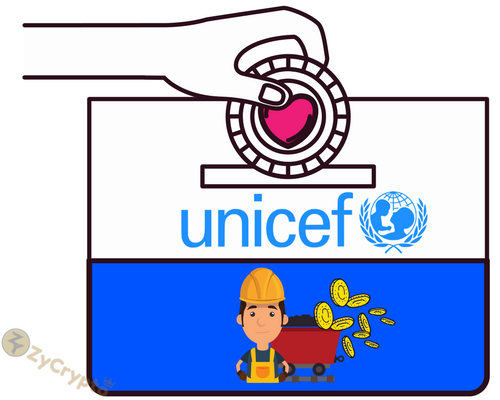The United Nations International Children Emergency Fund (UNICEF) has proven it will not be left behind in the adoption of the Blockchain technology to improve lives and has recently launched a new campaign to help raise funds through cryptocurrency mining.
While the prospect of controlling one’s browser to mine cryptocurrency may seem odd, the non-profit organization is definitely using it as a force for good.
On a website called the HopePage, Australian online users can donate a percentage of their computer’s processing power to help mine the Monero cryptocurrency.
As new coins are mined, they are swiftly converted into fiat currency and remitted to the UNICEF Australia who will, in turn, use these funds to provide help for vulnerable and less privileged children, globally. The UNICEF is generally noted to provide life-saving supplies such as food, safe drinking water, and vaccines to children growing up in hostile environments.
A statement on the HopePage reads:
“This website uses some of your computer’s processing power to automatically generate funds for UNICEF Australia.”
“UNICEF works in some of the world’s toughest places to save children, protect their rights, and help them fulfill their potential.”
Visitors to the organization’s Australian website are also greeted with a prominent banner that displays a message:
“Visit the UNICEF HopePage and turn your processing power into hope for every child.”
It is understood that the HopePage’s browser miner is powered by an opt-in version of the Coinhive API and AuthedMine and is really save for donors.
As users spend more time on the website, more cryptocurrency is mined and at the time of compiling this report over 2,000 computers are donating processing power to this noble course and the numbers have kept increasing at nearly 10% per hour.
Surely, there are very many ways cryptocurrencies can be used to support humanitarian services, and UNICEF has just set a milestone. Users who cannot provide cash or provisional funding for the organization’s activity can seize this opportunity to leave a mark on the life of children in over 190 countries manned by the UNICEF.
The future alone can reveal just how far-reaching emerging tech tools can influence just one more aspect of human existence.






